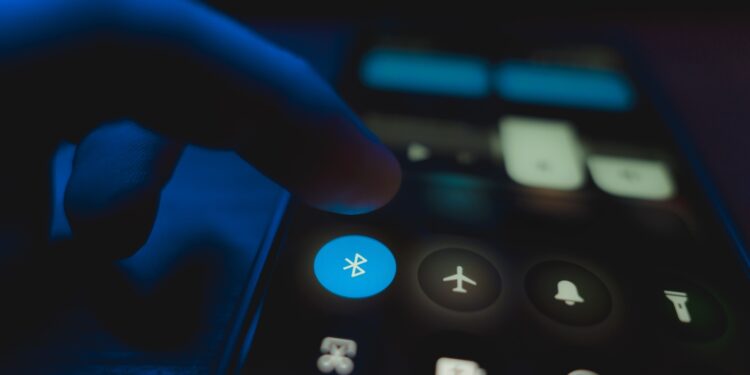Bluetooth 6.1 is here. The Bluetooth Special Interest Group (SIG) has released the new update, introducing the next version of the wireless technology you use every day – whether listening to music, tracking your activities, or finding your device. Bluetooth 6.1 offers two clear advantages, especially for iPhone users and Bluetooth accessories: better data protection and longer battery life.
Bluetooth is convenient, no question. But it does have its flaws—especially when it comes to data protection. Anyone with a little bit of knowledge could track Bluetooth devices under certain circumstances. The power consumption of many accessories was also a problem, especially with small devices like trackers or earbuds. Bluetooth 6.1 addresses precisely these issues. The update is part of a new semi-annual release schedule from the SIG. So you can expect new features to arrive regularly in the future.
What's new in Bluetooth 6.1
The key new feature of Bluetooth 6.1 is the introduction of the so-called Randomized Resolvable Private Address, or RPA for short. This function is designed to prevent Bluetooth devices from being easily tracked. Previously, Bluetooth addresses changed at fixed intervals – anyone who knew this could potentially identify movements or devices. With RPA, these addresses no longer change predictably, but randomly. This makes it significantly more difficult to track a device over an extended period of time. This provides greater security, especially in public or sensitive environments. The goal is clear: fewer opportunities for third parties to locate the device.
Data protection through random address changes
The big difference lies in the way the address changes. Addresses aren't just randomly changed, but now they also happen in the controller device—usually the iPhone itself. Previously, this task was partly handled by the accessory. This not only improves data protection but also reduces the burden on the accessory.
Better battery life by shifting processes
Because the controller device (e.g., your iPhone) now takes over the work, the accessory saves energy. This can have a noticeable impact on battery life. Small devices, where every percentage point of battery life counts, particularly benefit from this. This means you have to charge less often or get longer battery life with the same consumption.
Bluetooth 6.1 is based on Bluetooth 6.0
Bluetooth 6.1 builds on the 6.0 update, released in September 2024. At that time, among other things, Channel Sounding was introduced – a technology for centimeter-precise location tracking. For iPhones, this means significantly more precise device location via Bluetooth. Version 6.0 also brought improvements in latency and scanning. Bluetooth 6.1 complements these technical advancements with more protection and improved energy efficiency.
iPhone 17 could support Bluetooth 6.1
The iPhone 17 is expected to be released in September 2025. It's certain that it will support Bluetooth 6.0—and very likely Bluetooth 6.1 as well. This would mean that you, as an iPhone user, would benefit directly from the new features, without any additional effort. Devices like AirPods, AirTags, or third-party accessories could then operate more efficiently and securely.
Outlook on Bluetooth 6.2
The SIG is already planning the next update: Bluetooth 6.2 is scheduled for release in late 2025. Details aren't yet known, but the new release cadence suggests that development is progressing in small, regular steps. This will allow features to be introduced more quickly and better adapted to new devices.
Bluetooth 6.1 makes a real difference
Bluetooth 6.1 brings two clear improvements: more privacy through random address changes and longer battery life for accessories. iPhone users in particular should benefit from the update, as Apple is expected to integrate both versions – 6.0 and 6.1 – into the upcoming iPhone 17. If you use Bluetooth regularly, whether for music, tracking, or location, you'll get a noticeably better user experience with Bluetooth 6.1. (Image: Shutterstock / Rokas Tenys)
- Apple in the EU's sights: A procedure with questionable results
- Google contradicts Apple manager: usage continues to rise
- Apple wants to suspend new App Store rules for the time being





